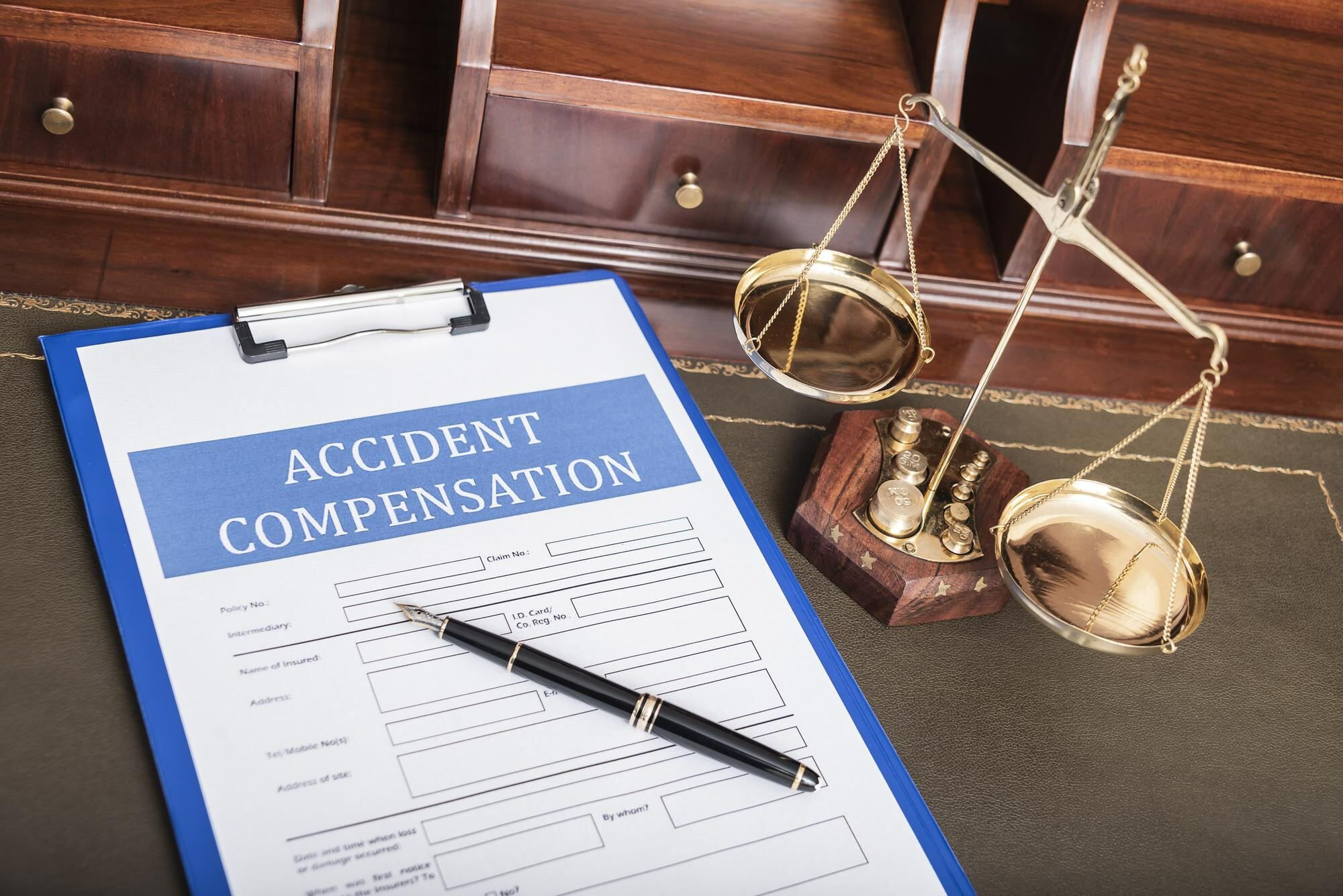In the maze of legal proceedings following a personal injury, one critical timeline often looms unnoticed until it becomes a barrier to justice: the Texas Statute of Limitations for Personal Injury. Consider the story of John, a Dallas resident, who, after suffering injuries in a slip-and-fall accident, delayed his legal proceedings. By the time he decided to file a claim, the two-year statutory deadline had just expired, leaving him unable to seek compensation that was crucial for his recovery.
Understanding the Texas Statute of Limitations for Personal Injury is not just a matter of legal compliance—it is a fundamental step to ensuring that your rights are protected and your injuries are justly compensated. This statutory clock dictates the timeframe within which you must act, making it imperative for all Texans, particularly those in Dallas, to grasp its importance fully.
In this article, we will delve into what the Texas Statute of Limitations for Personal Injury entails, the consequences of missing this deadline, and the pivotal role of timely legal intervention. Our goal is to equip you with the knowledge to navigate these legal waters effectively, ensuring that you can initiate your personal injury claims within the prescribed limits.
What is the Texas Statute of Limitations?

The Texas Statute of Limitations for Personal Injury sets a definitive boundary for the timing of legal actions. This legal mechanism serves to ensure that lawsuits are made in a timely manner, thus preserving the integrity of evidence and the efficiency of the legal system. But what does this mean for residents of Dallas or any other part of Texas who find themselves grappling with injuries from an accident?
Firstly, it’s crucial to grasp that the statute of limitations is fundamentally the deadline for filing a lawsuit in the civil court system. Once this period expires, the injured party typically forfeits their right to seek compensation for their injuries, regardless of the severity or the clear liability of another party.
In Texas, the personal injury deadline is generally set at two years from the date of the injury. This span is pivotal for anyone injured due to someone else’s negligence, whether it’s a car accident, a slip-and-fall incident, or any other form of personal harm. It’s important to note that this timeframe is consistent across most types of personal injury cases in Texas, underscoring the necessity for injured parties to act swiftly.
For Dallas residents, this means that from the moment an injury occurs, the clock begins to tick. Whether it’s a Dallas car accident or an incident of medical malpractice, the Texas injury statute demands prompt action. This timeframe is intended to encourage the timely resolution of disputes and to prevent the endless threat of litigation hanging over the parties involved.
Factors Affecting the Statute of Limitations in Texas

Impact of Missing the Deadline
The statute sets a finite period within which you can initiate legal proceedings after an injury. In Texas, this period is typically two years from the date of the injury. Missing this deadline can permanently bar you from seeking compensation for your injuries, no matter how severe they are.
Legal Consequences
If a personal injury claim is not filed within the Texas injury statute limits, the defendant can use the statute of limitations as a defense against the lawsuit. This defense is generally absolute, meaning that once the deadline is passed, the courts will typically refuse to hear a case pertaining to that claim. This makes it imperative for potential claimants to understand and act within the Texas legal deadline to protect their rights.
In legal terms, missing this deadline usually results in a dismissal of the case. The courts strictly enforce the statute limitations Dallas as a way of ensuring fairness and preventing the indefinite hanging of a legal threat over someone’s head. It also protects the integrity of evidence, which can deteriorate over time, thereby supporting just outcomes in personal injury claims.
Case Studies
Several case studies highlight the critical nature of the Texas lawsuit deadline. For instance, in a notable Dallas car accident case, the claimant filed the lawsuit two years and one day after the incident due to an incorrect calculation of the leap year. The court dismissed the case based on the expiration of the Texas statute limitations, emphasizing the unforgiving nature of legal deadlines.
Another case involved a Dallas injury lawyer who failed to file a claim within the two years due to a misunderstanding about the discovery rule’s application, which sometimes applies to medical malpractice cases. The court ruled that the claimant should have known about the injury earlier and thus dismissed the claim for being filed late.
These examples underscore the importance of timely legal action. Potential claimants should consult with a Dallas accident attorney immediately after an incident to ensure that all relevant dates are calculated correctly and that procedural oversights do not jeopardize their right to compensation.
For anyone in Texas dealing with a personal injury, being aware of the Texas personal injury statute of limitations is not just advisable—it is essential. Missing the filing deadline extinguishes your right to recover damages, closing the door on justice for your injuries. As such, it is highly recommended to seek legal negligence advice early to navigate these complex rules effectively.
How to Track and Manage Your Claim’s Deadline

Role of a Personal Injury Lawyer in Managing Statute Limitations
When facing a Texas statute of limitations personal injury case, the role of a seasoned personal injury lawyer is indispensable. Not only does an attorney provide expert guidance through the often complex legal landscape, but they also ensure that all filings are completed within the required deadlines, protecting your right to compensation.
Expert Guidance
Navigating the Texas injury statute involves more than simply marking a calendar; it requires an in-depth understanding of how these laws apply to specific circumstances. A Dallas injury lawyer specializes in interpreting the intricacies of Texas legal deadlines and applying this knowledge to benefit your case. They can clarify how the statute limitations Dallas affects your ability to seek damages, particularly when the nuances of Texas negligence rules come into play.
For anyone unfamiliar with the legal system, understanding the difference between the limitations period Texas and how it affects various types of personal injury cases, such as accident statute Texas or Dallas claim limits, can be daunting. Here, the expertise of a lawyer is crucial. They can explain in clear, accessible language how these laws impact your case and help you navigate the personal injury deadline effectively.
Case Preparation
Preparing a personal injury case involves meticulous attention to detail, gathering of substantial evidence, and strategic planning—all of which must be completed within the Texas injury claim deadline. A Dallas accident attorney will manage all aspects of case preparation, from collecting police reports and medical records to securing expert witness testimonies that support your claim. This process is essential to not only build a strong case but also to ensure it is filed within the personal injury timeframe dictated by Texas law.
Lawyers also play a critical role in managing the documentation required to support your claims. This might include detailed logs of your injuries, photographic evidence, and comprehensive financial records that demonstrate the economic impact of the accident. Each piece of evidence must be meticulously documented and aligned with the personal injury limit requirements, ensuring that no critical elements are overlooked.
In the context of Texas claim timing, legal professionals are adept at speeding up or slowing down the process based on the best strategic approach for your situation. Whether it’s aggressively pushing forward to meet a looming filing deadline Texas or strategically delaying filings to gather more evidence, an experienced lawyer will know the best tactics to employ.
Secure Your Rights Before the Clock Stops

Achieving Justice Through Expert Advocacy
Throughout the journey of a car accident claim, the expertise of a Car accident lawyer proves indispensable. From the initial case evaluation to intricate settlement negotiations and potential courtroom battles, these professionals are pivotal in helping victims get maximum car accident settlement. They navigate the legal maze precisely, ensuring that every legal avenue is explored to enhance the car accident settlement received.
The benefits of engaging a Personal injury attorney, Auto accident lawyer, or Compensation claim lawyer extend beyond simple legal representation; they offer peace of mind and a dedicated advocate who protects your rights and interests. Dallas crash lawyers and car lawsuit attorneys are not just legal advisors but are steadfast partners in your recovery from an accident’s aftermath.
If you’ve been involved in a car accident, don’t settle for less than you deserve. Reach out to a qualified Car accident lawyer today to discuss your case and learn how you can secure the car accident settlement necessary to facilitate your recovery. Their expert guidance can be the key to successfully resolving your claim, allowing you to focus on what truly matters—your healing and well-being.








